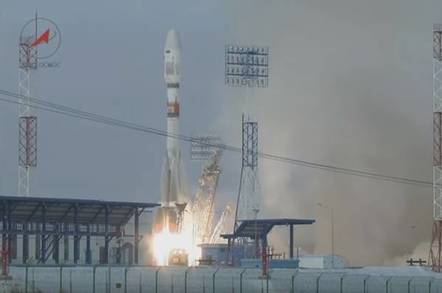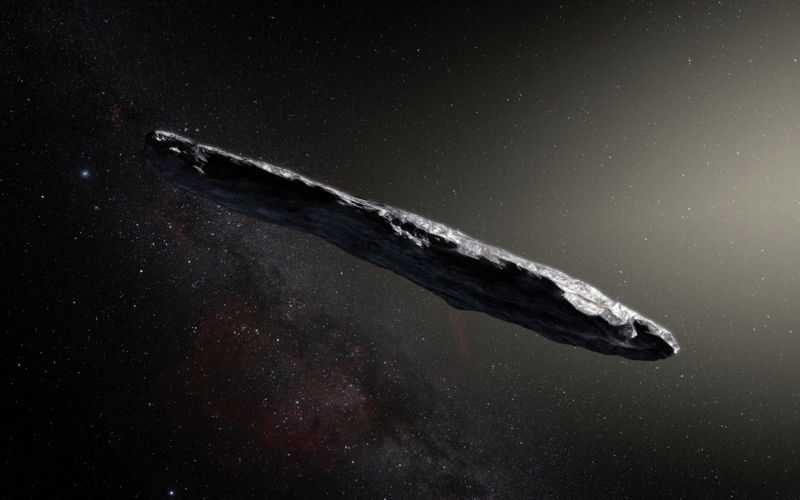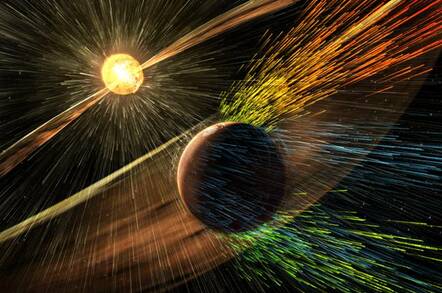Which distant Mars-alikes could we live on? Ask these Red Planet data-sifters
MAVEN probe observations shed light on atmosphere loss
Scientists are applying knowledge gained from studying Mars to calculate how the atmospheres of theoretical exoplanets would behave.
David Brain, professor at the Laboratory for Atmospheric and Space Physics at the University of Colorado Boulder and co-investigator for NASA's MAVEN (Mars Atmosphere and Volatile EvolutioN) mission, told a meeting of the American Geophysical Union yesterday how his team used data gathered from MAVEN to estimate how a Mars-like planet might behave when in orbit around a different star.
Mars' atmosphere has been scraped away over four billion years since it lost its protective magnetic field (magnetosphere), which was likely caused by meteorite strikes. The MAVEN probe has been in Martian orbit since 2014, measuring the rate of atmospheric loss due to various causes and sending data back to Earth for the team in Colorado to analyse.
"The MAVEN mission tells us that Mars lost substantial amounts of its atmosphere over time, changing the planet's habitability," said Brain. "We can use Mars, a planet that we know a lot about, as a laboratory for studying rocky planets outside our solar system, which we don't know much about yet."







